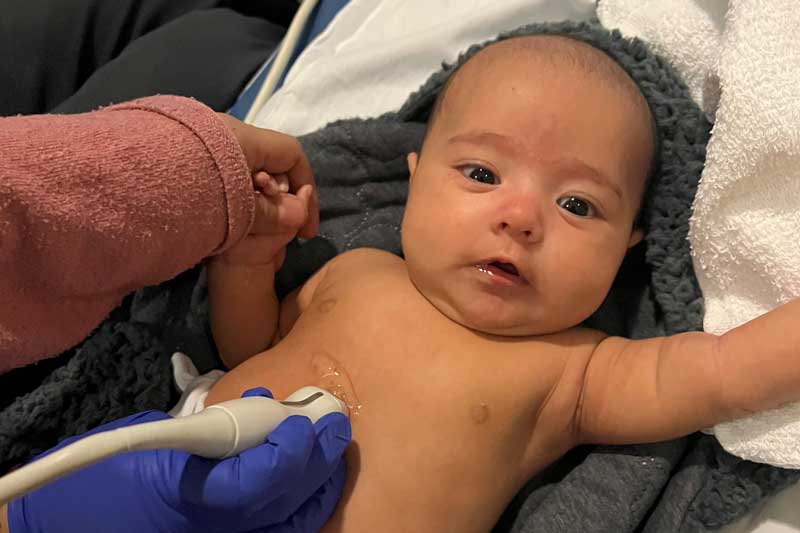Symptoms and Diagnosis of Congenital Heart Disease

Scarlett was born with an atrial septal defect.
A congenital heart defect (CHD) is often diagnosed in infancy, or even before birth. But some defects are harder to detect than others and may not be diagnosed until much later in childhood or even adulthood.
Diagnostic evaluation
If you or your child has a congenital heart defect, it’s important to follow up regularly with a cardiologist. Your cardiologist can perform a range of tests to evaluate your heart problem.
At your appointment, your cardiologist will take your medical history and perform a physical exam. He or she may also order an electrocardiogram (EKG or ECG), chest X-ray or an echocardiogram. Blood tests are particularly important for patients with cyanosis and single ventricle hearts treated with Fontan operations.
The cardiology staff will talk to you about each test. Don’t hesitate to ask the doctor, nurse, sonographer or technician to explain these procedures. After your tests are completed, your cardiologist will explain the results and whether follow-up is needed.
Sometimes the initial tests don’t provide enough information for a complete diagnosis, and more tests may be necessary. These include cardiac catheterization and angiography, magnetic resonance imaging (MRI) and CT scanning, Holter recording and stress testing.
Diagnosing children
Severe heart problems generally become evident during the first few months after birth. Some babies are blue or have very low blood pressure shortly after birth. Other defects cause breathing difficulties, feeding problems or poor weight gain.
Minor defects are most often diagnosed during a routine medical checkup. Minor defects rarely cause symptoms. While most heart murmurs in children are normal, some may be due to defects.
If the heart problem is suspected based on symptoms or a heart murmur, your child’s pediatrician or family physician will likely refer your child to a pediatric cardiologist. Pediatric cardiologists are trained to diagnose and treat heart problems in infants, children and young adults. They have the expertise and equipment to determine what tests and treatments your child will need, and how often your child will need heart checkups in the future.
Learn the common tests associated with congenital heart defects.





